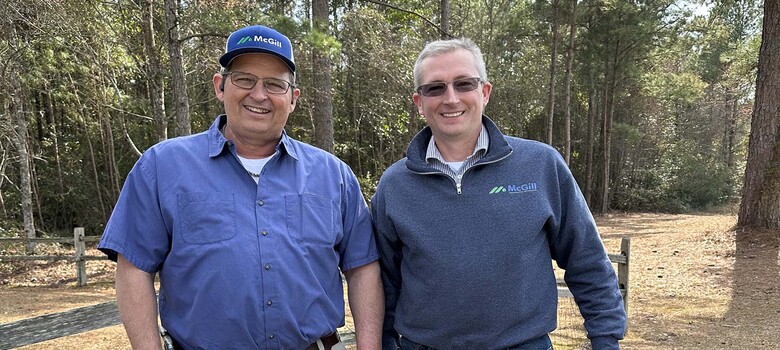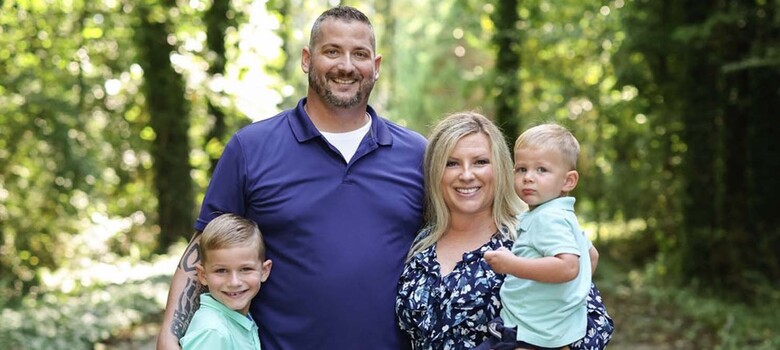 From the DukeHealth.org archives. Content may be out of date.
From the DukeHealth.org archives. Content may be out of date.
Keeping the Faith During Colon Cancer Treatment

When Betty Marrow-Taylor was diagnosed with colon cancer, she discussed her treatment options with her doctor, Hope Uronis, MD, and appreciated her caring, compassionate approach.
Betty Marrow-Taylor recently completed a 5K — a walking 5K, but a 5K nonetheless. She feels so good that strangers would likely never guess what she’s been through. That is, unless she tells them, which she often does, for the purpose of helping them reduce their risk of a similar journey.
The 52-year-old mother of two was diagnosed with stage three colon cancer two years ago. When she got the diagnosis she was, understandably, shocked. “I thought, could this really be happening to me? But I was hopeful because I hadn’t felt sick. I hadn’t had any weight loss or other common symptoms. So I was optimistic.”
Marrow-Taylor had received care from Duke Health for years and was very happy with her care providers, so where to be treated for cancer was a no-brainer.
When the discussion with her doctors turned to chemotherapy, Marrow-Taylor was of two minds. “I knew that the chances of recurrence were lower with chemotherapy after surgery,” she says. “But then I learned how difficult the treatment would be, and that was another shocker.”
Her oncologist, Duke’s Hope Uronis, MD, helped her sort out the pros and cons. “She’s so caring and compassionate. I never felt rushed when I was talking to her,” says Marrow-Taylor. “I told her she had the right name (Hope). She told me, ‘You can do this!’ So I did.”
After recuperating from surgery, Marrow-Taylor began her chemotherapy. In addition to receiving infusions at the Duke Cancer Center, Marrow-Taylor went home with an intravenous pump so that she could continue to receive infusions for another 48 hours. “I didn’t let it stop me,” she says. “I wore the bag in a crossbody purse and I would go out. Unless you looked very closely you couldn’t tell.” After 48 hours, an infusion nurse would come to Marrow-Taylor’s house to remove the pump. All in all, the journey from surgery to the end of chemotherapy lasted nine months.
“I don’t think I would change a thing because I grew as an individual through this,” she says. “And I feel like I may have helped people by them hearing my story.
“They told me that officially I’m not cancer free until after five years,” she continues. “Each year your chances are better for the cancer not returning. I’m staying positive and believe that it’s not coming back. I call it the Betty Faith Journey. I feel positive it’s not there.”
Another bright spot in her journey was undergoing genetic testing and discovering that she does not carry a gene for the cancer — good news for her sons. Still, she reminds her sons to be vigilant and get the recommended colonoscopy — a message she delivers not only to her family but everyone she can.



